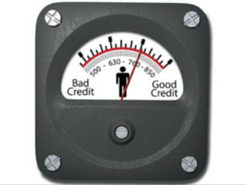Recently I was asked to contribute some personal finance articles to Triage Cancer (http://triagecancer.org/). One of the topics was about credit scores and budgeting. Being the lazy person I am, I am going to use the blog twice – once for me and once for Triage Cancer!
So, what is a FICO score? The Fair Isaac Corporation is a software company that has a super-secret formula using data from the 3 credit bureaus (Transunion, Experian, and Equifax) to create your credit score. That credit score is used on everything from renter applications to car loans, mortgages to insurance rates. Some employers even check your FICO score before making a job offer.
Although the actual formula is a guarded secret, the elements of a FICO score are public knowledge:
- 35% Payment History – how many late payments do you have?
- 30% Amounts Owed – the less the better
- 15% – Length of Credit History – how long have you been borrowing money and paying it back? Longer is better.
- 10% – Types of Credit In Use – secured versus revolving credit – they like a mix of the two
- 10% – New Credit – do you have a ton of new loans/credit cards opened recently?
What are some things you can do to improve your credit score? According to www.myfico.com (the horse’s mouth), these three things:
- Check Your Credit Reports. Make sure there are no incorrect open accounts or late payments. Maybe there are payments you owe that you didn’t even know about. The most common instance of this is unpaid medical bills. By the time the insurance companies and providers go back and forth you may have no idea how much you owe or think you owe nothing at all. This is an honest mistake that costs many consumers in the form of a lower FICO score.
- Make your credit card payments on time and for more than the minimum. Credit card companies report to the credit bureaus monthly, so the better your payment history with them, the faster your FICO score improves. Also, the worse your payment history is, the faster your FICO score goes down.
- Reduce the amount of debt you owe. Not so easy, but the first thing to do is stop using your credit cards if you are heavily in debt.
There are many other tips on improving your credit score on www.myfico.com. Also, if you have errors on your credit report that the credit bureaus are not helpful in resolving, you can go to www.ftc.gov to get help.
If these topics sound like they would be of interest to your employees, sales conference, or professional organization, contact me at 303-324-0014 or kristi@



